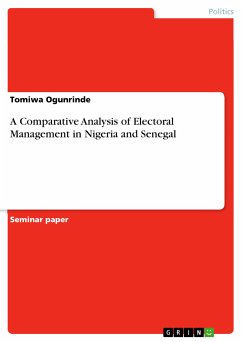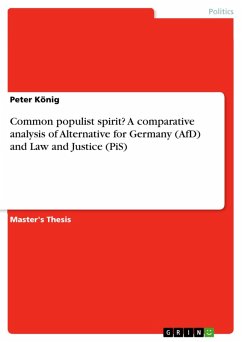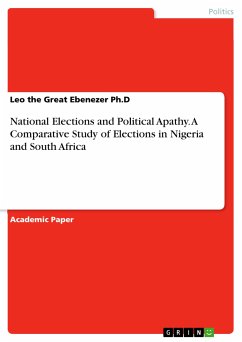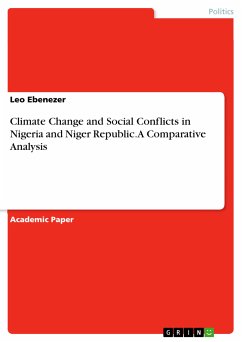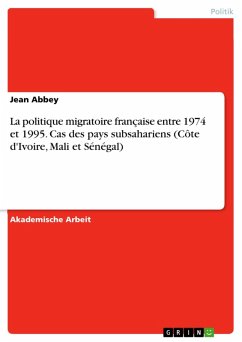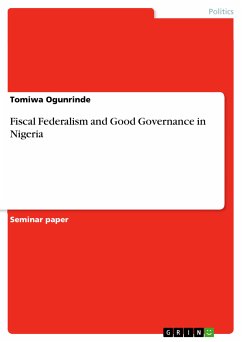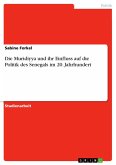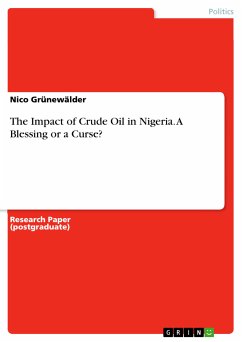Seminar paper from the year 2020 in the subject Politics - International Politics - Region: Africa, grade: A, University of Ibadan, language: English, abstract: The institution responsible for electoral management is called electoral management body. They are solely responsible for organising an election with the assistance of other government bodies, most importantly, the Police. This paper aimed at making a comparative analysis of the different systems (Nigeria and Cameroon) of election management through institutions called Electoral Commissions. A qualitative study, data were sourced from secondary sources. The study tried to identify some trends. In the word of Fukuyama (1992), democracy is the "endpoint of man's ideological evolution". At the end of Cold War, the world saw transition of hitherto authoritarian military/ monarchical states to democracy. Between 1990 and 1994, about thirty of one forty-one African states that had not held multiple party elections did so. Eligible citizens expressed their right to air their opinion through voting on who they so desire to govern them. It is not only in national elections that voting has a special importance, but also in many institutions, private and public domains. As experience has shown so far in many of these countries, elections become not day activity, rather they are complex set of activities with different variables that act and feed on one another.
Dieser Download kann aus rechtlichen Gründen nur mit Rechnungsadresse in A, B, BG, CY, CZ, D, DK, EW, E, FIN, F, GR, HR, H, IRL, I, LT, L, LR, M, NL, PL, P, R, S, SLO, SK ausgeliefert werden.

